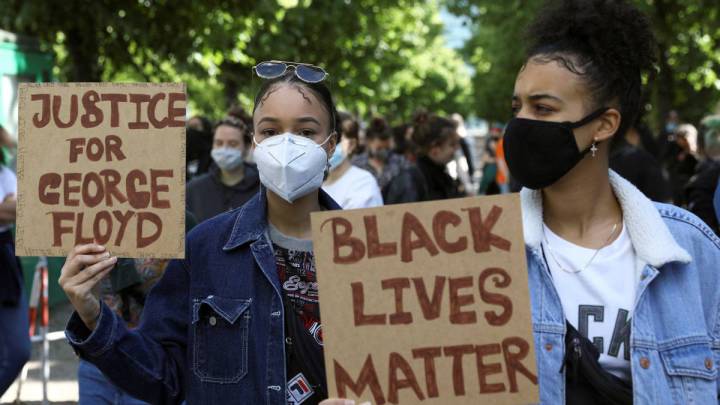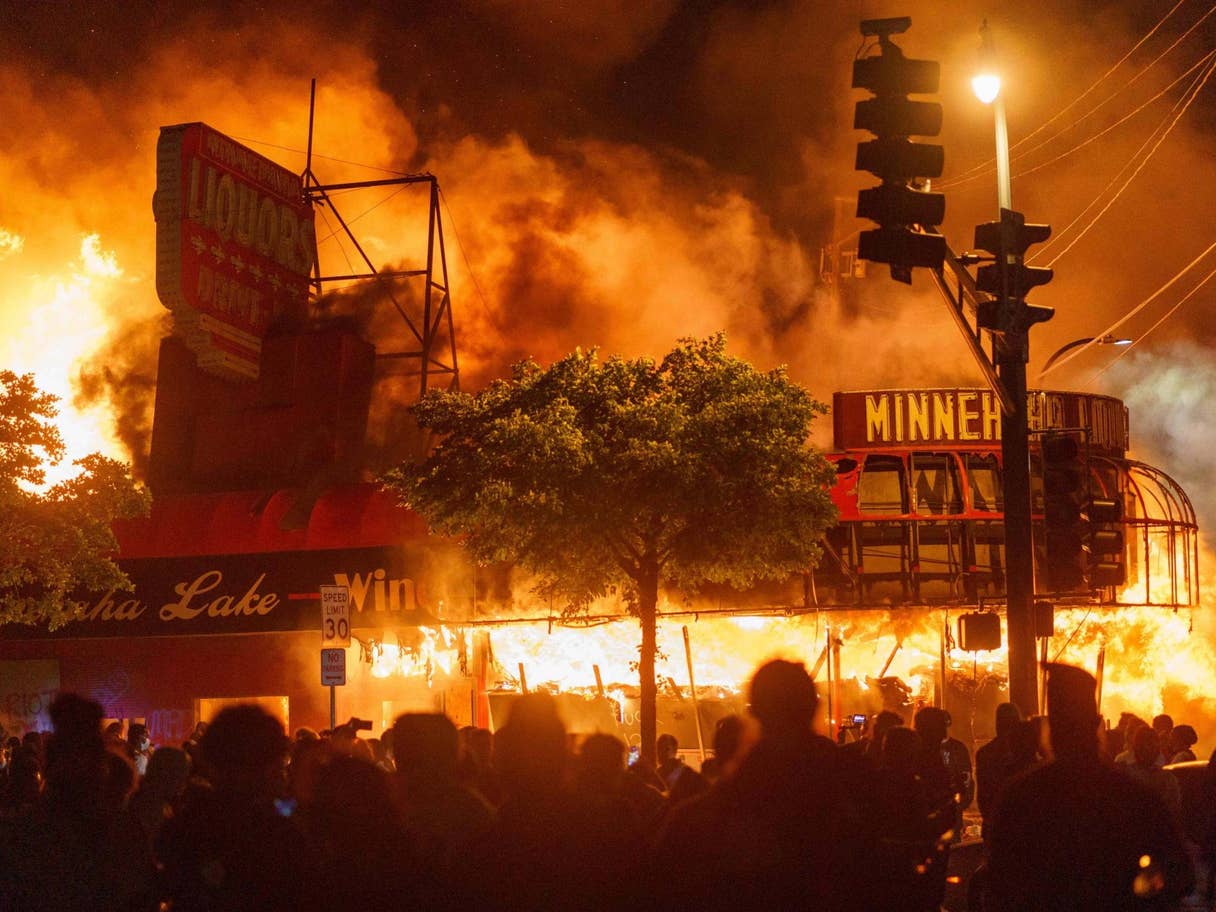 |
| Black Lives Matter protest after death of George Floyd (Image: AS English - Diario AS) |
While the world should be prioritising on defeating coronavirus, racism returns with a vengeance to dominate global headlines and cripple communities. The shocking death of George Floyd, in the hands (or knees in this instance) of a police officer on 25th May, has provoked widespread anger and demands of justice - justifiably.
The anger has come in the form of riots at large US cities such as Minneapolis, the city where Floyd passed away, as well as protests across the country, and abroad; London, Berlin among other places expressing solidarity. Social distancing rules have been thrown out of the window in place of a collective showcase of anguish.
The fact that this is a racially aggravated murder cannot be overlooked. Floyd was accused of using a counterfeit $20 note to purchase food, a relatively minor crime in retrospect. Pleading his innocence to police officers, instead of being given a caution, Floyd was restraint by one of the officers, using his knee on the victim's neck for over eight minutes. It was on the ninth minute where Floyd died. He was just 46 years of age. It later turned out that actually, Floyd didn't use a counterfeited $20 bill.
It isn't the first time a white police officer has killed an innocent black man due to presumed guilt. In 2016, I wrote about the Black Lives Matters movement after a similar incident in Ferguson, Missouri, led to riots of a similar scale. Floyd's case is not isolated. Trust in the police force from BAME communities is at a critically low point. The reality, of course, should be the absolute opposite.
The key solution here is to ensure that a cycle, that has been rolling on for decades, needs breaking - a cycle where white police officers in small corners of our society don't assume that every black man is guilty and need restraining, a cycle where as a result, communities are shattered by looting and riots, and a cycle where there is no attempt of truce. Communities never want to be in a position to seek justice. They want to live in an environment where they can integrate and be treated as equals. This is the gap that needs filling, but work that cannot be done overnight. Terence, Floyd's brother, has called for the riots to end, adding that the focus must be on peace, which will be the best way to mark his loved one's legacy, and I agree.
 |
| Unrest in Minneapolis (Image: The Globe Post) |
Breaking the cycle won't be easy, but it needs to happen. It is so easy to say that the violence on innocent black men must stop, and it is so easy to say that police forces need to reduce the number of times they restrain an individual. It is also easy for those who don't understand inequality to advise those who are angry to 'calm down'. So here's my suggested solution, which just may lead the way to a better living environment for those in communities overshadowed by racism.
Firstly, the US needs a President and Congress that can work collaboratively together, recognise racism and take it seriously. If coronavirus is eased in the country, unlikely at this present moment, a general election will take place in early November. By the end of the year, we will find out whether Donald Trump retains his place in the White House, or Democrat Joe Biden. Trump has been busy attacking Twitter over censoring his posts which encourage police forces to fight back, so he isn't likely to play an effective mediator anytime soon. Biden has a few short months to come up with a decent plan to offer something different.
Secondly, police forces need to change tact and culture. They should be seen as our protectors and fighting actual crime. It isn't a good look where it looks as though you are fighting crimes that don't exist. If there is a recruitment drive from any force in the near future, they need to prioritise diversity and ensure that those who have stereotype-tendencies to either ditch these thoughts, or hang up their badges for good. In normal circumstances, personal views in a professional environment comes secondary. When it comes to diversity issues, according to Governing.com, in 2013, 8.8% of Minneapolis Police Department's workforce was black, which is poor compared to the likes of New York City at 16.1% or Miami at 32.5%. These workforces need to fully reflect the demographics of the geographic areas they are meant to protect.
 |
| The Blind Side film (Image: Business Insider) |
Thirdly, there need to be ambitious and realistic initiatives in place which enables all cultures in struggling communities to unite. It takes two to tango. One of my favourite films is The Blind Side, which tells an incredible true story of a middle-class white woman raising a working-class black teenager as her own, and in the process opening his eyes to a life of opportunity and away from poverty, crime and drugs.
Bridging the gap between poverty and opportunity doesn't have to be as great as how the film portrayed, but ignorance cannot be bliss in this instance. Nobody wants to live in poverty. Nobody wants to be dealing dangerous drugs so that they can put food in mouths. And those who find themselves in these desperate situations are not dangerous people either. Prejudging will only make matters worse.
The US isn't alone in this. The UK has similar issues with the stereotyping of young black men by the police. While we cannot pretend that young black men on both sides of the Atlantic commit crimes of unimaginable natures, it is important not to shut all away from the thriving corners of society, based on skin colour. Even if they are heading for a life of crime, or have entered that road, integration is the single most powerful way to prevent the tensions we see today. Continue the cycle I mentioned earlier and more George Floyds will pass away long before their time.
Comments
Post a Comment